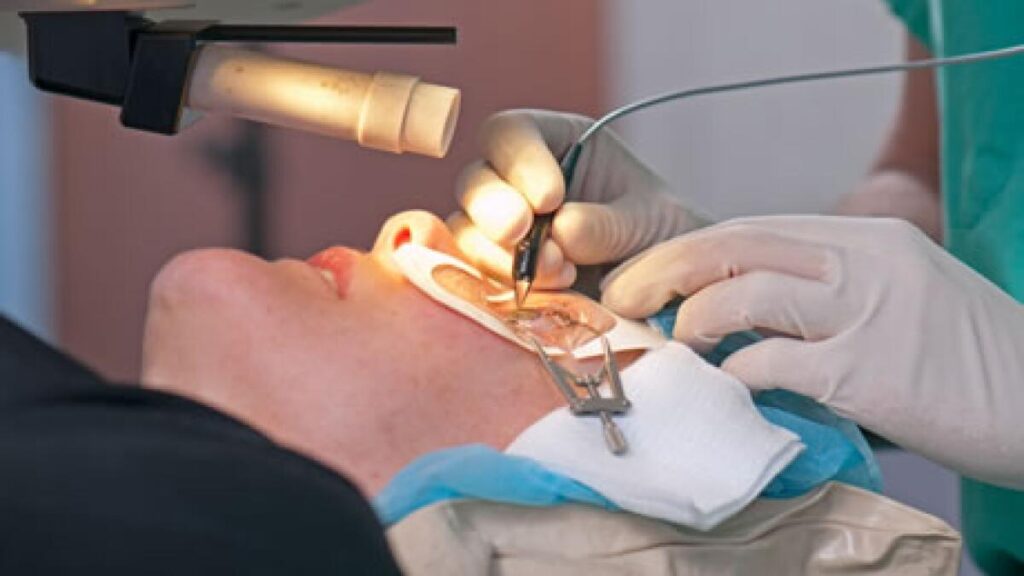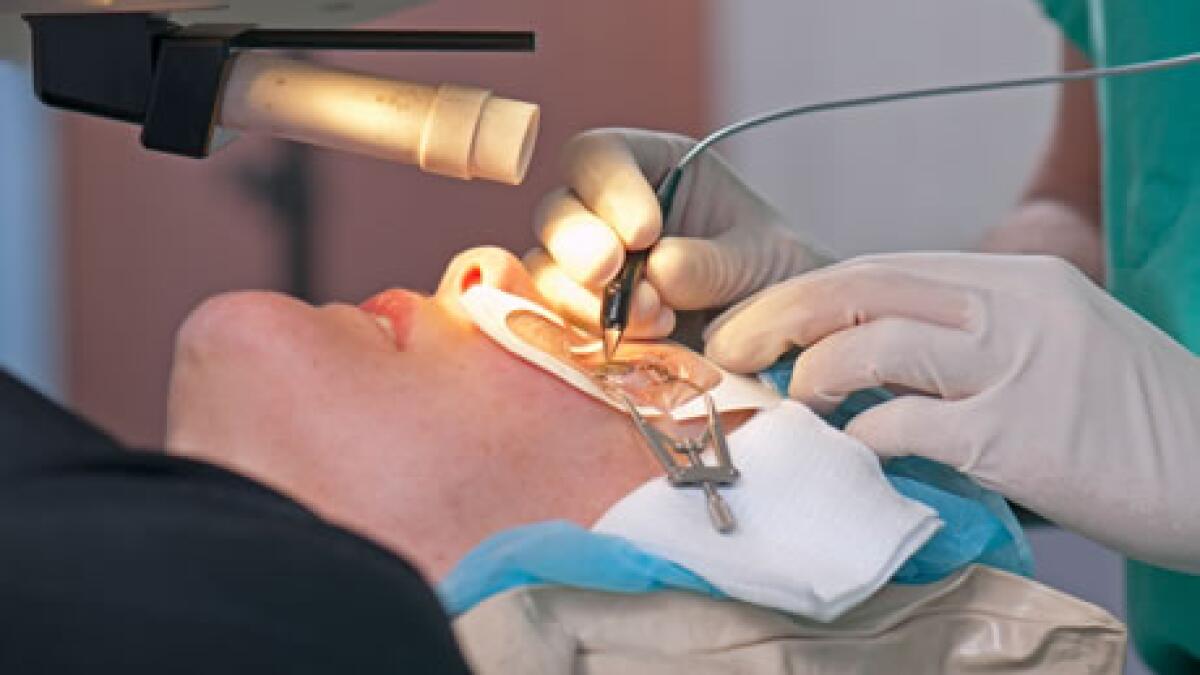If you are 25 years of age or older and considering laser eye surgery, you are probably wondering if your age makes a difference. You will essentially learn how your age affects your laser eye surgery in this essay.
25–40 for laser eye surgery
Most laser eye surgery eye specialists concur that the ideal age range for laser eye surgery eligibility is between 25 and 40 due to a few considerations. Prescriptions for contact lenses and eyeglasses have probably stabilized by the age of 25. One of the characteristics of a great candidate for laser eye surgery is a steady prescription. Your prescription may still be changing if you are under the age of 25.
40–55 for laser eye surgery
Even if you are blessed with perfect vision for the rest of your life, it is considerably more probable that you will need reading glasses after you approach forty. But it doesn’t mean you won’t be seen as a prime candidate for laser eye surgery. Your eye surgeon for laser eye surgery has a strong chance of giving the procedure the all-clear if you are a non-smoker in good health with no history of medical problems. For this specific age group, factors to take into account include a family history of diabetes, glaucoma, and corneal issues.
56 and above for laser eye surgery
Although several factors should be taken into consideration before a senior person qualifies as a candidate, there is simply no maximum age restriction prohibiting seniors from having laser eye surgery. Cataracts, a common ailment of the eye in older people, is one reason why someone in this age range can be deemed unsuitable. If you are still viewed as a terrific potential at the age of sixty and have good vision, If cataracts have developed, they become the main focus of medical care; nevertheless, this does not preclude a patient from undergoing further laser eye surgery or other refractive lens procedures. During your visit, you must also inform your eye doctor of any medications you are currently taking.

There is another choice available if you are tired of wearing corrective glasses. Myopia, astigmatism, and hyperopia are just a few of the numerous visual issues that may be treated with laser eye surgery.
What is a laser eye procedure?
Laser assisted in situ keratomileusis is another name for laser eye surgery. As the name implies, the procedure totally improves the cornea by using a highly specialized laser called an excimer laser (the transparent front covering of the eye).
A skilled eye surgeon will create a tiny flap in your cornea using a laser or a microkeratome. The opportunity to reach the stroma, the underlying corneal tissue, will come from lifting the light flap.
Depending on your refractive eyesight and any necessary mistake, the excimer laser may remove minuscule quantities of tissue in a predetermined manner.
This alters the cornea’s shape, enabling the retina to receive light that is more precisely focused.
Your eye doctor will conduct a thorough eye exam and evaluate your surgical and medical history if you are thinking about having laser eye surgery. Your doctor will note any potential anomalies in your cornea and determine if you are a good candidate for laser eye surgery.
Despite the fact that laser eye surgery is a medical operation, you may be assured in its high level of safety. More precision was possible throughout the procedure because to recent developments, such the development of the femtosecond laser and wavefront technology.
Nowadays, laser eye surgery is quite straightforward and less invasive, especially if well considered beforehand.
It may be finished in 30 minutes as an outpatient surgery. Having said that, it is also a surgical procedure. Complications are less likely if you know how to properly care for your eyes following the treatment.
Here are some helpful aftercare suggestions to make sure you get the best results.

1. After the procedure, use care advice.
Almost every patient has some measure of pain after undergoing laser eye surgery.
Since every patient reacts to pain differently, this might range from being very little discomfort to feeling like it’s burning or even ripping. Additionally, you are extremely likely to have light sensitivity during the first six hours after surgery. Simply sleeping off this time for a few hours is much preferable.
Your surgeon could advise you to take a lot of painkillers and eye drops if you are feeling discomfort. This lessens dry eyes and protects against infection. Additionally, you will be given eye shields to protect your eyes from strong light and avoid scratching them.
In order to prevent unconscious eye rubbing while you sleep for the first four or even five nights after surgery, you must also wear your eye shields.
Although you can have good eyesight right away after the procedure, it is dangerous to drive alone because to crying and glare. Ask a friend or family member to arrange your transportation home.
2. Recharge.
The most essential time following surgery is likely the first couple of hours. It is advised that you take a lot of naps when you return home. This might assist you in avoiding certain activities that could strain your eyes.
Going for a really lengthy sleep can also help with letting most of the pain go and allowing your eyes to start recovering.
3. Avoid rubbing your eyes.
Even if it’s been said before, it’s important to reiterate. Try to resist the impulse to rub or touch your eyes after your laser eye surgery, particularly in the first week. This might cause the flap to become loose and lead to difficulties after surgery.
You may use the lubricating eye drops your eye doctor recommended for grittiness and comfort if your eyes feel particularly scratchy.
4. Apply your eyedrops as directed.
Regarding eye drops, you must follow the schedule recommended by your doctor. This would include giving them at certain times throughout the day. The greatest outcomes will be obtained by adhering to your doctor’s instructions while reducing dryness and irritation.
Before applying the drops, wash your hands to prevent the spread of any dangerous illnesses.
5. Take a shower.
The day following your laser eye surgery, you are free to take a shower, although it is advised that you stay hydrated. You may prevent getting water or soap in your eyes by doing this. Any contact to water may cause the corneal flap to crease, increasing the risk of complications.
If you must take a bath, keep your eyes closed, bathe from the back of yours, and avoid receiving the hot water from the faucet directly into your eyes. Do not rub, but softly wipe your closed eyes. Use lubricant drops after your shower or bath if the time for your medication has passed.
And generally speaking, stay away from areas like spas, hot tubs, and swimming pools for at least 7 days after your operation.
